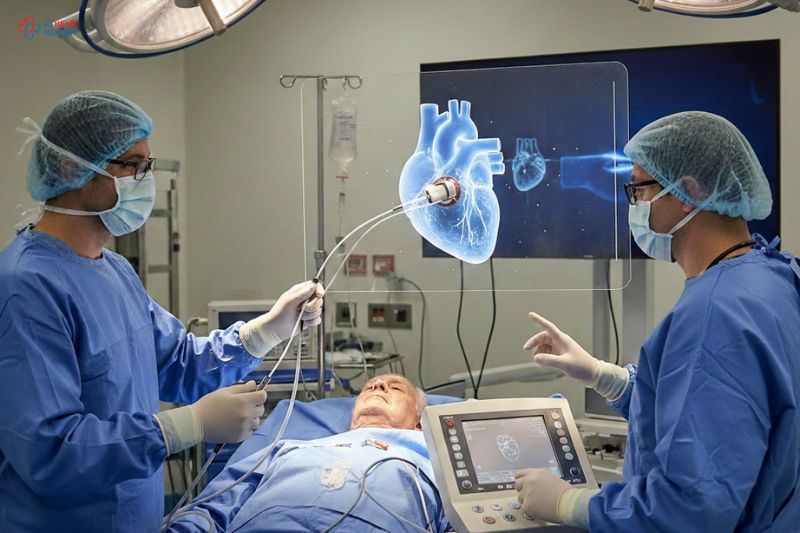A frequent issue, chest pain can have a wide range of potential causes, some of which can be fatal (1). In order to determine the underlying cause for chest pain, it is critical to conduct a thorough medical history and physical examination.
History
- The diagnosis of chest pain begins with a thorough background, just like with any workup. Gain a thorough insight of patient’s complaint, to begin with.
- Onset: In terms of the time the pain first appeared, find out what the person was doing at the time. Was the pain a result of an activity or was the person resting?
- Location: Is the pain localized or diffuse, and can the patient pinpoint it with one finger?
- Duration: Till when did the discomfort last?
- Character: Allow the patient to express their pain on their own terms.
- Aggravation/alleviating factors: Finding out what causes the pain to worsen or what relieves it is crucial. Is there a physical component, and is it related to breathing or eating? Are there any positional elements involved?
- Don’t forget to inquire about new sports, weights, and exercise regimens. Inquire about the drugs they have used.
- Radiation: This could help you understand visceral pain.
- Timing: How frequently do they feel this pain? How long does the pause last? (1)
Examine the patient’s medical history thoroughly for kidney disease, coagulopathies, and cardiac history. Ask regarding family medical background like drug and tobacco usage as well as cardiac history.
Physical
The physical checkup should cover:
- Complete set of vitals, including readings of blood pressure (BP) in both arms
- General look with a distressing diaphoresis
- Examining the skin for lesions (shingles)
- Examination of the neck for jugular venous distension (JVD), particularly during inhalation (Kussmaul sign)
- The palpable ache and crepitus in patient’s chest.
- Heart examination
- Lung examination
- Abdomen checkup
- Asymmetric, equal pulses, edema, and unilateral swelling in the extremities (1)
Testing – A number of different tests are done to identify the source of chest pain.
Electrocardiogram (ECG) – An electrocardiogram (ECG) shows the path taken by an electrical wave as it travels through the heart’s muscle.
Blood tests — Blood tests can be used to evaluate a number of enzymes often found in the heart muscle, such as troponin, creatine kinase (CK), and CK-MB (2).
Exercise stress test – A treadmill walk or run stress test involves monitoring your ECG. Additionally, it aids in the ischemia diagnosis (during which the heart is unable to receive enough oxygenated blood).
Cardiac catheterization — Cardiac catheterization, sometimes referred to as coronary angiography, is inserting a tiny catheter into the coronary arteries under the guidance of an X-ray while injecting dye to highlight any obstructions. It is typically advised for those who are thought to have a serious chance of coronary artery blockage (2, 3).
Management
The cause of your chest pain will determine how it is treated.
- Nitroglycerin — Your doctor may recommend nitroglycerin, a drug used to treat angina, if you have previously experienced chest pain or you suffer from coronary heart disease. If you feel pain in your chest, you should place a pill, called nitroglycerin, below your tongue to dissolve it. Drink water to wet the tablet if your mouth is dry, but do not ingest it. When taking nitroglycerin, you must sit down because it may cause you to feel woozy or lightheaded (2).
- Wait for five minutes after taking your dose of nitroglycerin (one tablet) (measure this with a wristwatch, clock, or cellphone).
- If your chest pain does not subside in five minutes, get an ambulance right away.
- Take a second pill only if you have explicitly clarified a different course of action with your doctor.
- Your doctor could advise taking the third dose of nitroglycerin if you experience frequent angina; other medical professionals advise taking two or three doses (one every five minutes) in total before calling for emergency assistance (2).
All the latest information regarding heart issues and concerns is available online. One of the most popular websites that ensures to take best possible care for your heart is https://behearthealthy.in/contact-us/.
It has a wide range of useful topics providing new insights regarding cardiac care, heart health and cardiologist advice to live a happy, and joyful life. We care for you, so please reach out to us on our social media page for any query: https://www.facebook.com/careforyourheart.in/ and •. https://www.instagram.com/careforyourheart.in/
References
- Harskamp RE, Laeven SC, Himmelreich JCL, et al. Chest pain in general practice: a systematic review of prediction rules. BMJ Open 2019;9:e027081
- https://www.uptodate.com/contents/chest-pain-beyond-the-basics


